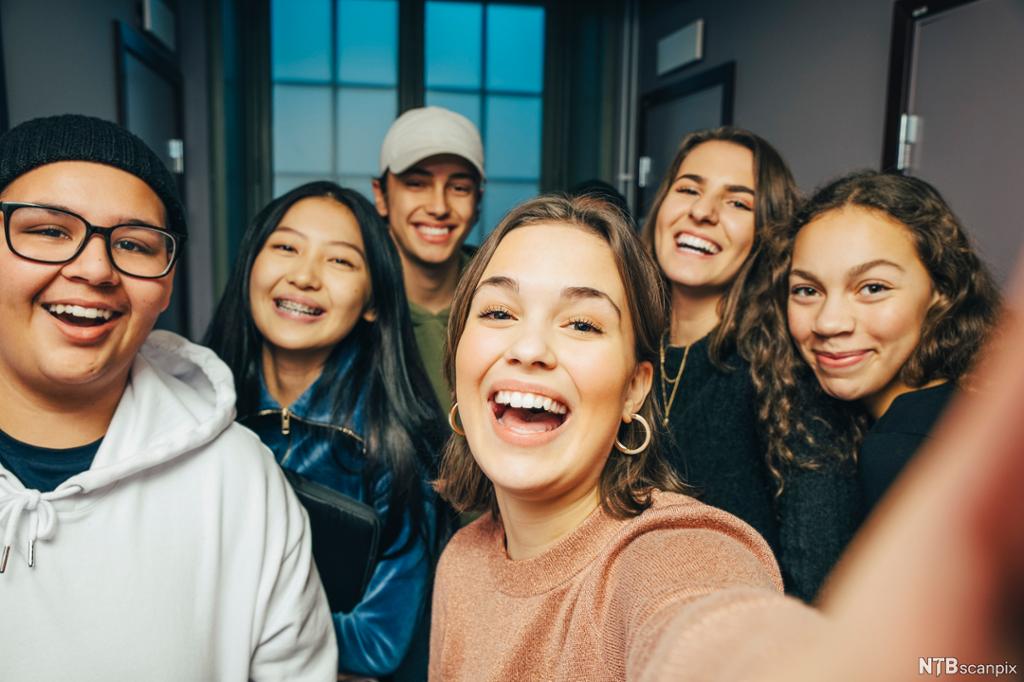Get to Know Someone

Sit in groups of 4 – 8 students. Choose a group leader. The group leader reads the questions aloud, and the ones who can answer with ‘I do’ raise their hand and explain further. If anyone can add a true story, they get a round of applause!
- Who has got a dog?
- Who likes skiing?
- Who prefers the beach to the mountain?
- Who can rap really fast?
- Who prefers pizza to burgers?
- Who likes sports?
- Who likes shopping?
- Who loves boating?
- Who loves opera?
- Who loves to get up in the morning?
- Who has English as their favorite school subject?
- Who loves reality shows?
- Who lives green and environmentally friendly?
- Who loves politics?
- Who hates politics?
- Who plays an instrument?
- Who loves to be on a stage?
- Who hates to be in the centre of attention?
- Who writes poetry in English?
This get-to-know exercise may be repeated during the year with more specific topics. Just make up a new set of questions.
Sit in a wide circle, and have the student on your right tell you about himself/herself. Make sure you get the name, main interest, place of living and favourite food/TV-series/sports etc.
After five minutes, the teacher tells the student who is closest to the door to start. He or she presents the person on the right. Continue around the circle clockwise.
You are at a class reunion with people you went to school with 10 years ago. So it is actually the people in the classroom with you now in ten years time.
Setting:
Pretend that this is the first part of a class-reunion where you visit you old classroom for the first time in ten years. You have so many memories from this room.
You are about twenty-five years old. Make up a life story, or use your own as you predict it will be.
Consider the following before starting the party
- Do I have a job?
- Do I have a girlfriend/boyfriend?
- Should I try to impress someone?
- Am I the mysterious stranger in the corner?
- Do I tell them about my collection of stamps (or any other impressive collection)?
- Am I self-confident and full of myself or calm and charming?
- How will I Introduce myself?
Consider using some of these lines (Some of them are not polite).
- My God, you haven't changed a bit, have you!
- Great to meet you! And what a great party!
- What’s your name? I don’t quite remember. Sorry!
- Wow, there must be almost 30 people in here!
- What do you remember best from our school days?
- Life is strange. When I used to sit here and dribble, I never imagined becoming rich and famous.
- This party is a bit boring; should we sing a song?
- What are you doing for a living?
- You really look a bit sad; can I cheer you up?
- Do you really think you should be talking to me?
- Please don’t ask me what I do; I don’t know myself.
- I've just finished my education, and now I have this great job.
- I’m a father/mother of three. Having children around is so wonderful!
- I bet this party cost a fortune. It’s really a waste. I bet they don’t even recycle. Do you recycle?
Remember to move around and introduce yourself to at least 10 old class friend.
Why learn English?
Sit in small groups or pairs and make a list of why you should be studying English. Go through the groups’ notes in class afterwards. Each group presents at least three situations where they need to know English to deal with something.
Since it is not allowed to repeat anything the other groups have come up with, you must either be inventive or volunteer as first group.
- Throw a ball to others in a circle and learn their names. Whoever gets the ball has to say the name of the one throwing.
or - Throw a ball to others in a circle and learn where they live. Whoever gets the ball has to say the name of the place where the one throwing the ball lives.
This exercise can be varied with other topics. It may be carried out in groups or in whole classes.